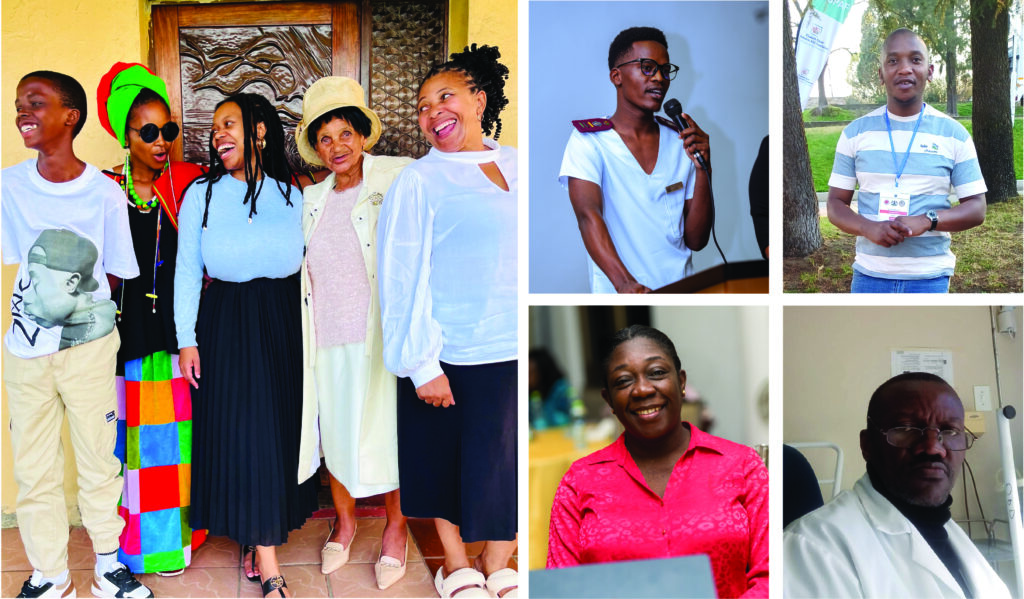
With ending-Aids-by-2030 targets increasingly at risk as efforts to combat the epidemic lose traction globally, it is more important than ever to implement targeted initiatives that address key gaps. Strategic, social impact research is the foundation of addressing shortfalls and blind spots effectively, as it helps to inform decision-making and policy on a granular level. Through research done by our academic team and students, we are consistently contributing to the HIV/Aids management research base.
Eight more graduates are joining our MPhil alumni on 26 March. We connected with some of them to find out more about what motivated them to choose their research topic and get comments on their findings.
Relevant, impactful research as the engine room for driving ending Aids efforts
As a paediatrician working at the HIV unit of the Suntreso Government Hospital in Ghana, Dr Joyce Emakayor Bening noticed that loss to follow-up was a common occurrence among young HIV-positive patients. Loss to follow-up refers to a patient who has not received antiretrovirals for three months or more (and who has not been transferred out of the HIV unit or passed away). Her research involved a critical assessment of the prevalence of and risk factors relating to loss to follow-up at the clinic.
One of the most surprising findings was that only 9,7% of the children in the HIV clinic were enrolled by 18 months. Since HIV in children generally occurs through mother-to-child transmission, HIV infection should be detected early and followed by enrolment – if maternal and child health services are adequate. In terms of the biggest challenges relating to controlling and ultimately ending HIV/Aids in Africa, Bening cites overreliance on dwindling foreign donor support, stigmatisation and discrimination preventing people living with HIV from seeking care or disclosing their status to their partners and family, as well as denial of infection and the belief that HIV can be cured leading to patients defaulting on treatment.
Oyena Cenga is a nurse who works for TB HIV Care as a facility team lead. His experience at a primary healthcare facility motivated his choice of research topic. “When I visited surrounding primary healthcare facilities, I discovered that viral load suppression among adolescents living with HIV was a major issue in the community,” he explained. Being virally suppressed means the virus is undetectable and therefore untransmittable. Cenga’s research investigated the causes of unsuppressed viral load among adolescents on antiretroviral therapy in a town in the Eastern Cape. One of the unexpected findings was the prevalence of psychosocial factors such as stigma and discrimination in households and families, which prevents ART adherence.
In Cenga’s view, retaining people in care is one of the biggest hurdles to gaining ground in the fight against HIV/Aids: “People are tested and are initiated on treatment, but there is still a high number who disappear in the long run. This challenge compromises progress towards reaching the third 95 of the UNAIDS 95-95-95 goals, which calls for 95% of people linked to care (initiated on ART) to be virally suppressed.”
Congolese healthcare provider Batako Obed Kodravele’s research focused on the factors that influence pap smear screening among HIV-positive women in the Volksrust community in Mpumalanga. From his experience, the majority of HIV-positive women in the community only seek medical attention when their condition has deteriorated, neglecting all-important preventative screening. Taking a wider look at the HIV/Aids epidemic in Africa, Kodravele believes insufficient funding is the key obstacle to ending Aids on the continent.
For his research, Katleho-Mohale Seisa (who works as a TB nurse) explored the effect of parental migration on the treatment outcomes of adolescents and young adults living with HIV in the Quthing district in his home country of Lesotho. “I chose this topic because young people continue to experience poor treatment outcomes and high HIV acquisition rates. My research aimed to explore their treatment experiences to inform more effective management and care strategies,” he said.
Despite strong support for adolescent health from NGOs, Seisa found a surprisingly significant gap in the sustainability of interventions that provide social support for adolescents and young adults. “This kind of support is crucial in improving treatment outcomes, especially for those who have lost parental care.” In a similar context, he believes the biggest obstacle to ending Aids is treating HIV purely as medical condition, with little attention being directed towards social aspects. According to Seisa, social behavioural change is critical to fostering HIV/Aids knowledge and improving prevention.
Ayabonga Vika works as a clinical research site coordinator at the Perinatal HIV Research Unit at the University of the Witwatersrand. Her responsibilities include quality control, training, coordination, staff management and patient consultations. She has found the MPhil module on strategic HR management particularly useful in refining her staff management skills.
Vika’s research focused on assessing the knowledge of healthcare workers – doctors, clinical associates and nurses – of vertical transmission prevention (VTP) guidelines in South Africa. The fact that clinical associates formed the largest proportion of study participants in the dataset was interesting. “Clinical associates are a new cadre in the South African healthcare setting and they performed well in the questionnaire,” said Vika. “It would therefore be crucial to make use of this cadre in South Africa’s HIV response.”
Kutala Theodorah Gcisa’s research highlighted the importance of taking the fight against HIV/Aids to a household level, considering that parents are the first people to instil values, discipline and culture in children. She investigated parents’ knowledge, attitudes and practices regarding communicating with their children about sexual health and HIV prevention, focusing on a community in the Eastern Cape.
Also zooming in on the role of parents/guardians in preventing and managing HIV infection in the family unit, Lindelwa Mhlongo explored the experiences of parents/guardians raising perinatal HIV-positive children, including challenges and fears around disclosing their child’s HIV status. Considering that mother-to-child-transmission rates in South Africa are still relatively high and adolescents and young children continue to have higher rates of poor treatment adherence, this is a problem that urgently requires a solution.
Focusing on how technology can support health management and education efforts, Mongezi Mhlongo examined the effectiveness of social media campaigns in promoting the uptake of oral pre-exposure prophylaxis among young women, who are one of the groups most affected by HIV/Aids in Southern Africa. The research delivered insightful findings in terms of how social media health campaigns can be made more personalised, interactive and authentic.
Congratulations to all our graduates!
We know completing the MPhil programme involved many sacrifices. Well done for persevering and for making an invaluable contribution to the ever-growing body of research work that helps us, slowly but surely, close the gaps in the fight against HIV/Aids. We are confident that your newly gained knowledge will continue to serve you well in your respective workplaces.
See more detail of these and previous MPhil graduates’ research projects here.
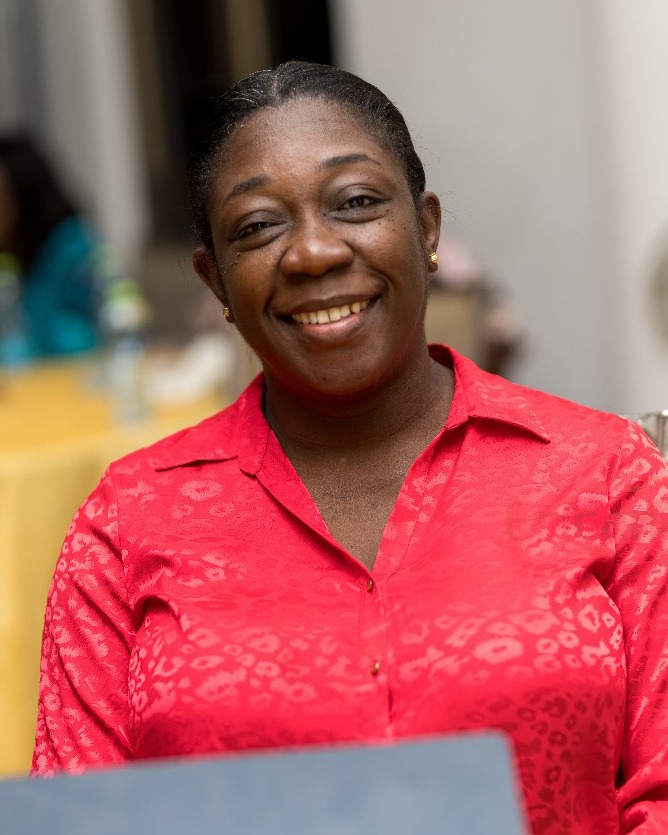
As a clinical practitioner, Dr Joyce Emakayor Bening has found her studies at the Africa Centre for Inclusive Health Management to be invaluable: “The PgDip helped me appreciate the non-clinical aspects of HIV/Aids, which gave me an edge in my clinical practice. The MPhil by virtue of the research work has given me a broader overview of the HIV/Aids picture globally and especially in Ghana.”

For nurse Oyena Cenga, there were times when it was challenging to meet submission deadlines together with the demands of work and personal life. However, by proactively prioritising and finding balance he succeeded and is reaping the rewards – a valuable lesson for future students.
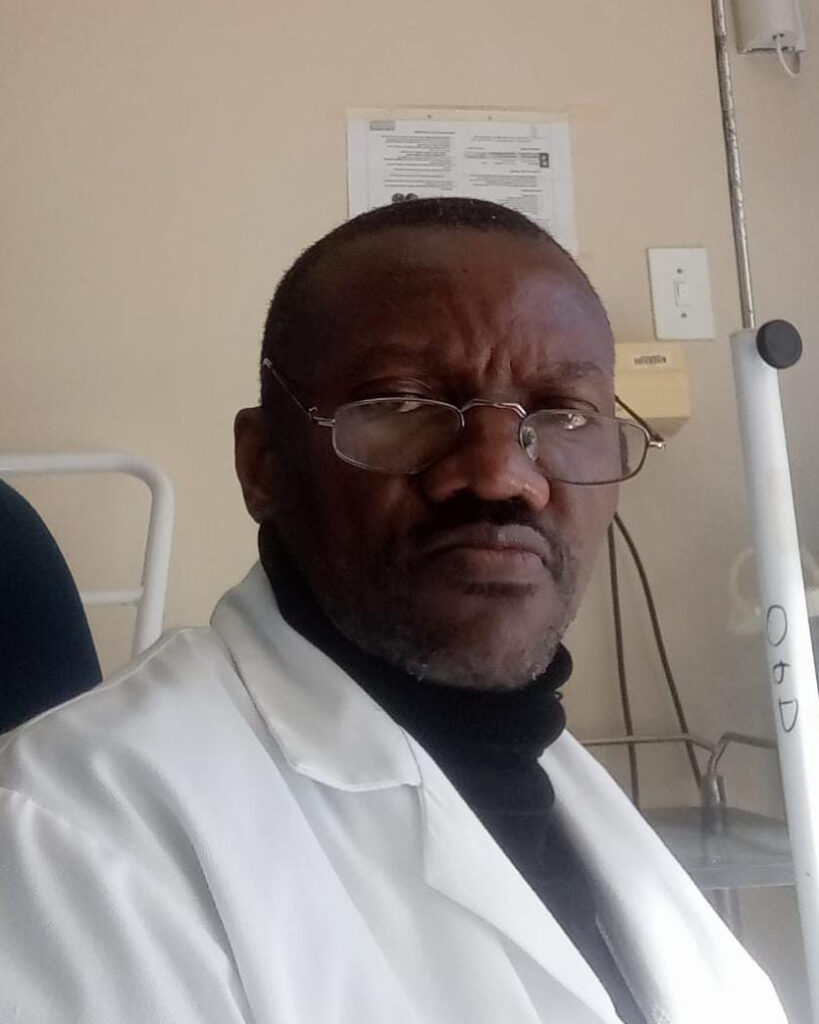
Based on his first-hand experience in the healthcare sector, healthcare provider Batako Obed Kodravele’s research explored the factors that contribute to poor uptake of pap smear screening by HIV-positive women in a local community in South Africa.
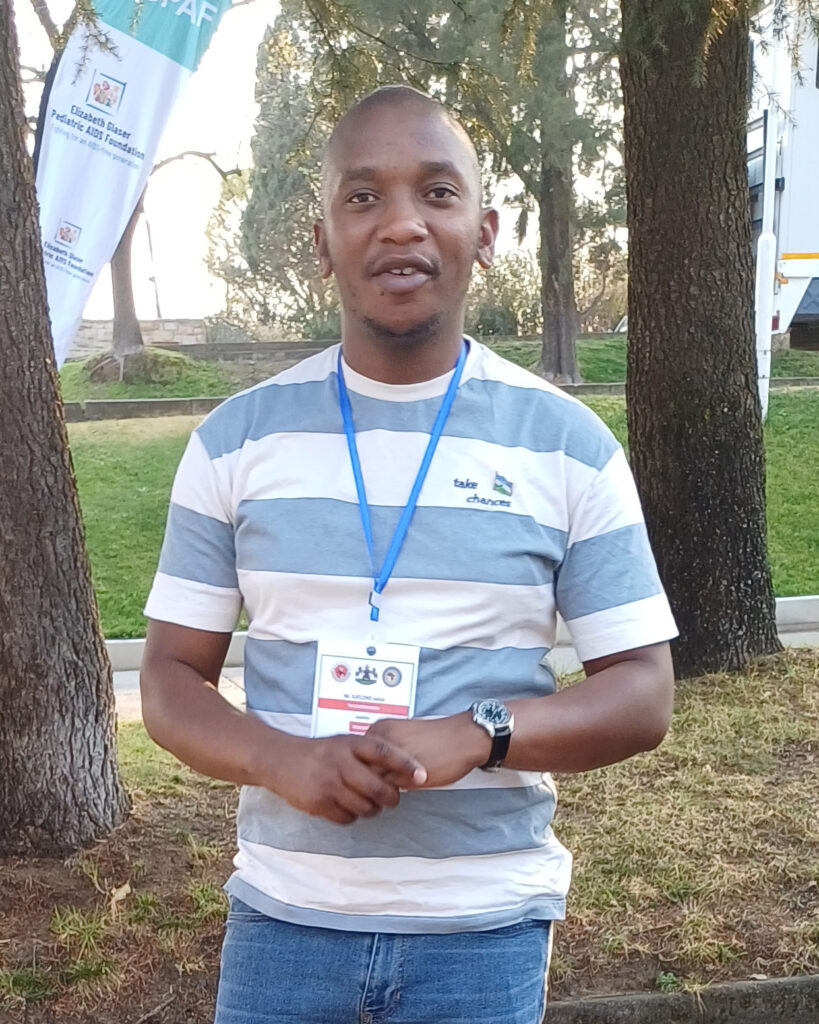
TB nurse Katleho-Mohale Seisa plans to use the skills and expertise he has gained during his MPhil studies to influence policy, improve patient-centred care models and contribute to research that strengthens public health interventions, particularly for young people.
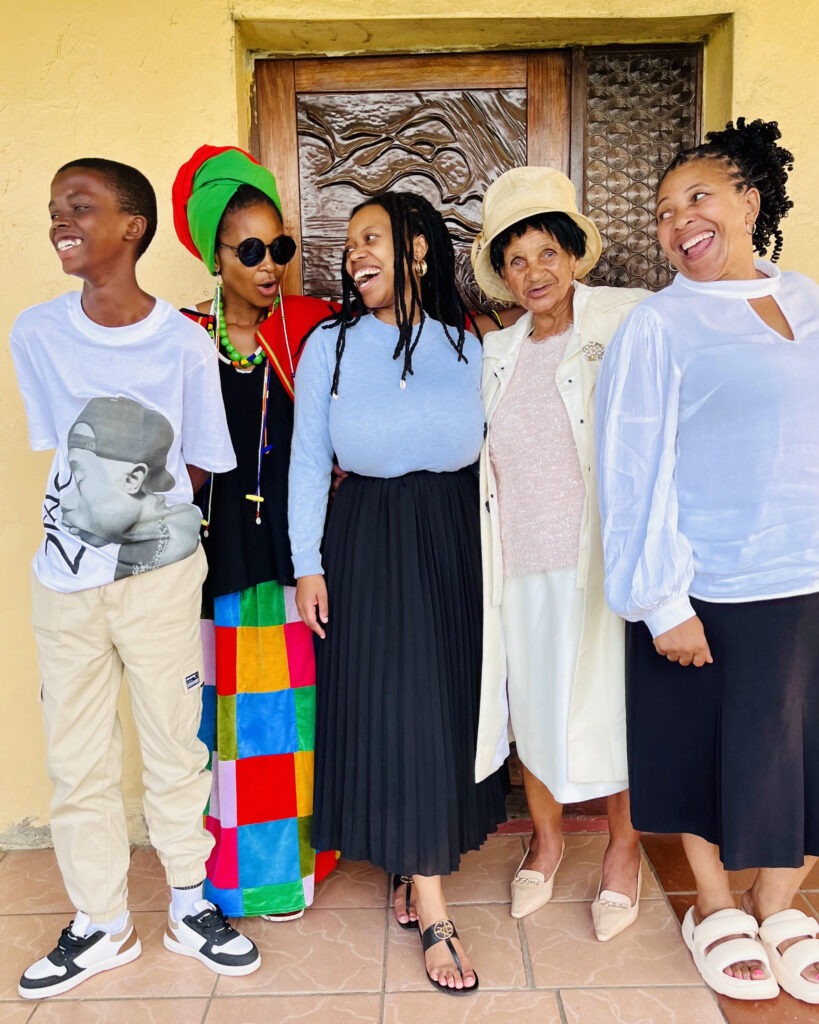
Although Ayabonga Vika (middle) had to sacrifice many weekends with her friends and family to complete her MPhil research project, she said that having a supportive mentor and supervisor lightened the burden.
